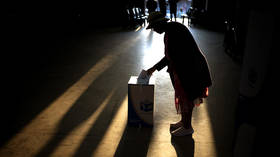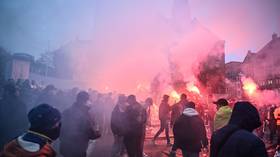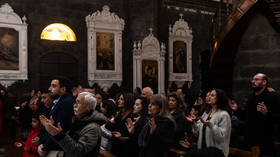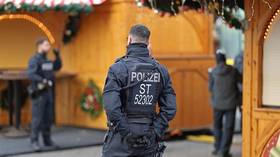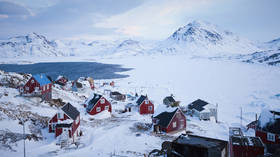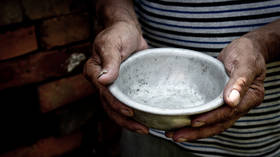South Africa’s ruling party secures national unity government deal with opposition
South Africa’s ruling African National Congress (ANC) has reached an agreement with three opposition parties, including its main rival, the Democratic Alliance (DA), to form a national unity government, state broadcaster SABC reported on Friday.
The move comes as lawmakers, elected last month, took the oath of office at the country’s legislative capital, Cape Town. Among the MPs sworn in on Friday was South African President Cyril Ramaphosa, who is seeking a second term. He will give up his seat in parliament if he wins the presidency.
The first session of the new National Assembly, presided over by Chief Justice Raymond Zondo, is expected to elect a speaker via secret ballot; several nominations were received for the position. Following the appointment of the speaker, MPs will decide upon the country’s next leader.
Ramaphosa’s ANC lost its majority for the first time in the nation’s post-Apartheid history in the elections held on May 29, obtaining 40.18% of the vote — 159 seats in the 400-seat parliament — down from 230 in the previous election.
The ANC has been negotiating with several opposition groups about various coalition government arrangements following the declaration of results by the electoral commission.
On Friday, SABC said Africa’s oldest liberation movement, together with the DA, the socially conservative Inkatha Freedom Party, and the right-wing Patriotic Alliance, had agreed to a unity government.
Under the agreement, the center-right DA, which received 22% of the vote and won 87 seats, would get the post of deputy speaker of the National Assembly, according to the outlet.
“It [the coalition deal] details the executive decision-making process, a conflict-breaking mechanism, and provides guidelines for policymaking and the finalization of the national budget,” News24 also reported.
The ANC announced on Thursday that it had reached a “breakthrough on the common agreement” with other parties to “work together,” but that it was not yet in a position to reveal the details of the pact.
On Friday, DA leader John Steenhuisen told reporters that the party will back Ramaphosa as South Africa’s next president.
“From today the DA will co-govern the Republic of South Africa in a spirit of unity and collaboration… we do so both for the millions who voted for us and all South Africans who yearn for a better government,” he said.
The ruling coalition has previously accused the DA of attempting to “mortgage” the country’s sovereignty to foreign powers after it wrote to the US and other Western governments requesting assistance in monitoring the May elections. It has also been accused of representing white privilege in a country with a black population of 81.4%, which Steenhuisen denies.
